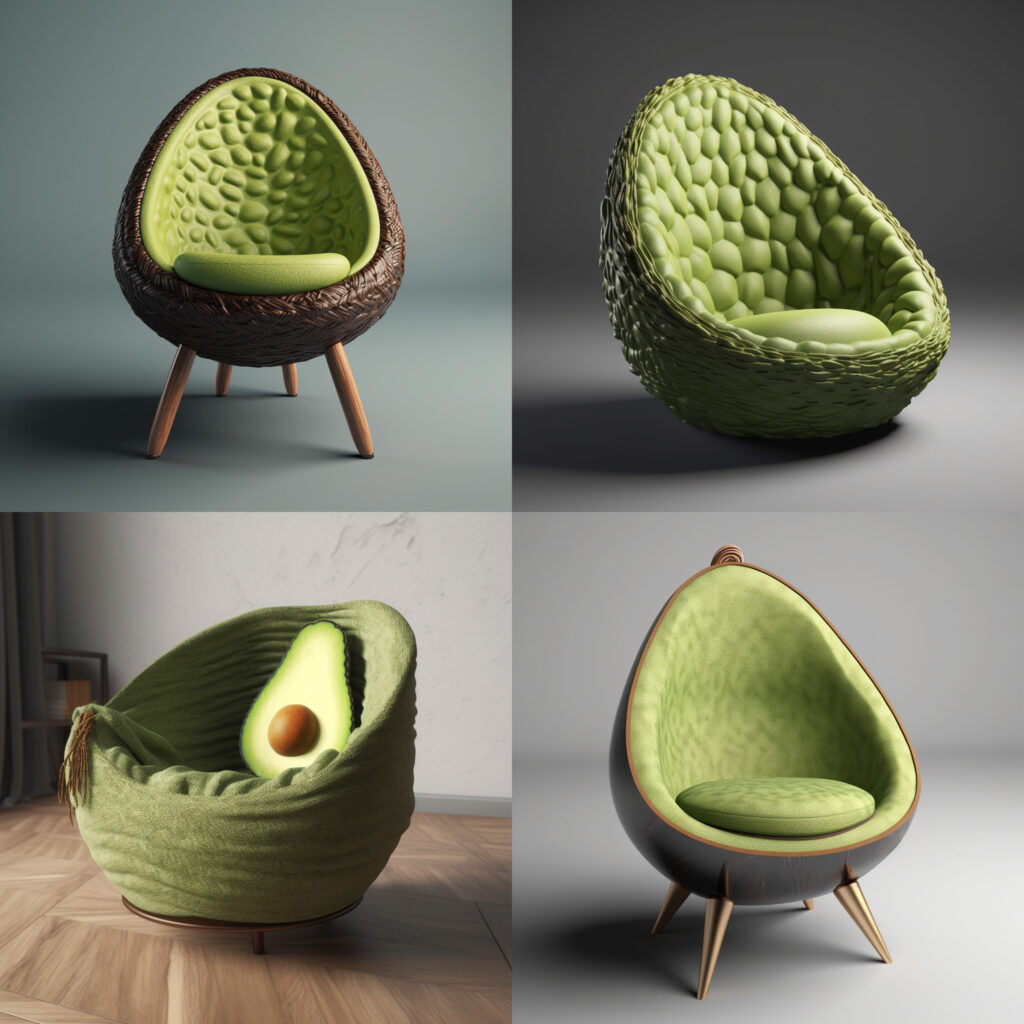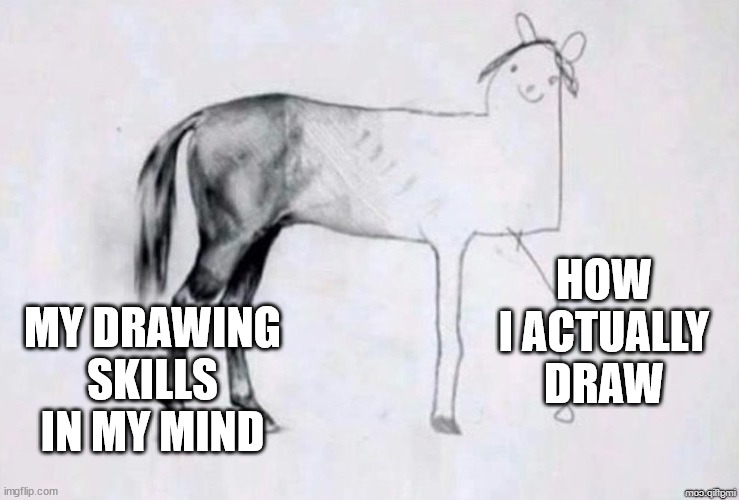At the start of 2023, nobody outside those sitting deep in AI saw it coming – the “overnight success” of generative AI.
Predictions from not so long ago as January, seem missed. Things have been progressing much faster than most people anticipated. Including AI leaders such as Chen Qiufan and Kai-Fu Lee and their predictions from AI 2041 book. In March alone, OpenAI launched GPT-4, ChatGPT got plugins, Midjourney has released its mind-blowing v.5.1 and Bill Gates declared this “The Age of AI,” arguing that the development of AI is as revolutionary as the creation of the personal computer and the Internet.
Yet, AI leaders like Cassie Kozyrkov (watch this bit) argue that what we’re experiencing now is not an AI revolution, but The Design Revolution. And I second that.
NLP / LLM AI has been around for a good couple of years and researchers and builders (like our folks at Untrite 😅) have been blazoning about their potential all over the papers, but only packaging it into an easy to interact and access design put it in front of the eyes and fingers of an everyday, non tech user.
I prompt, therefore I create.
So far, both the Midjourney and OpenAI have been leading the way in defining what’s possible with generative images and generative text, respectively.
In Jan 2021, another Open AI’s generative image model released its progress and beta version available to the public. The famous “avocado chair” prompt generated pretty good results.

But only two years later, its competitor Midjourney inc. clearly took the first place with astonishing results . In March, they released v5.1, which at the prompt: “avocado chair, cozy, soft material, interior design highly detailed, high res, –v 5” can now do this:

or this:

It’s hard to imagine what will we arrive at in the next 2 years, given that the progress is made exponentially. I feel it doesn’t make sense to report on that, since whatever anyone writes on AI, it’s immediately the yesterday’s news. So rather, I’d love to focus on how AI is slowly giving us superpowers, now.
Be your own Picasso
Your creativity is no longer trapped in your mind. Especially when you, like me, are getting in despair, each time you look at the outcome of your paper-based painting.

Not only you can now use computer as the extension of our imagination in form of static pictures and text. Soon, you’ll be able produce videos out of text. In fact, the early releases of generative video models produce pretty astonishing results already.
Where we are now
Unless you’re leaving in a cave or somewhere disconnected from the internet, chances are that you’ve heard of the grand child of OpenAI – ChatGPT intelligent bot, that can generate pretty accurate responses, or at least fool you with its authoritative sounding voice structure.
When GPT-4 was trained, it was fed a large portion of the available material on the internet. Training transformed that data into a statistical model that is very good at, given a string of words, knowing which words should follow from it—this is called next token prediction.
However, the kind of “knowledge” contained in this statistical model is fuzzy and inexplicit. The model doesn’t have any sort of long-term memory or way to look up the information it has seen—it only remembers what it encountered in its training set in the form of a statistical model.
v5.0

V5.1

AI revolution is more than that.
I don’t consider myself old, but at 35, when I think how much innovation has happened in my life span, it equally excites me, as it scares me.
The pace of change has been rapid, but we’re only at the very beginning of the digital revolution. Computers used to be really good at one thing: computing.
Now, we’ve taught them how to learn (hence the term “machine learning”), and designed them in the likeness of a human brain. Since currently designed systems learn recursively, they get more and more accurate with each interaction and each interaction happens faster than the previous one.
And here, we’re starting to lose the learning battle to the computers, since they are capable of moving much faster than our brains.
Human brain can process 11 million bits of information every second, but our conscious minds can handle only 40 to 50 bits of information a second. According to American psychologist George Miller’s study conducted in 1956, human brain can only consume so much information before becoming overloaded. In fact, most people can only handle 7 chunks of information (+/- 2) at a time. And you’ve probably heard of the Paradox of Choice – where having more options actually makes us unable to make decisions.
Computers don’t have that problem.
An electrical signal in the brain moves at 1/100,000th the speed of the signal in a silicon chip. And there is virtually no limit to saving information or juggling between pieces of information.
What will it mean to be human?
Where does it leaves us and how will it shape the way we live and work? To be honest, I’m not sure, but I am on a quest to use collective knowledge to find out potential ways where AI could take us.
I have this privilege of knowing many incredible leaders in tech and it’s a sin not to take advantage and share their wisdom (while learning more from them myself in the process 🤗). So in a couple of weeks I’m kicking off “Are You Human Podcast“.It will take some time before I arrive at interesting format, but you only do it by experimenting and tweaking things as you go.
The initial angles I’d love to explore with my guests in an easy, chill atmosphere will be:
🤖 What does it mean for you to be human?
🤖 Where do they think all this is going? Doesn’t the technological progress scare you?
🤖 What was the coolest/most ambitious tech projects they worked on … and those, that they failed at and why?
🤖What’s the most exciting tech invention you’re using or like reading about?
🤖 How can we find a place in AI-powered world, to not become obsolete?
Podcasting, like everything creative is an art, that you learn by practicing and taking inspiration from others.
If you know any interesting podcasts treating about tech like AI and its influence on shaping how we humans work and live, share them in the comments please! Or if you have some ideas on how I could make my podcast even more enticing – shoot and connect with me on LinkedIn.
I’ve also started a subpage on my blog hankka.com which I called “Understanding AI” where I’m going to be curating for you a collection of all the most intriguing articles, books and other content about AI. I’m aware that things change extremely fast and the sources I’m placing here may not be relevant by the time you read them. I will do my best to frequently check and update them there… or, write a script that will be automatically searching for and updating resources within my approved parameters, so I don’t have to 😉.


![Start-ups and start-downs [Evoque Journey] louveciennes @flickr](https://hankka.com/wp-content/uploads/2013/09/bfast.jpg)
![What are you afraid of? [Evoque journey] Donnie Nunley @Flickr](https://hankka.com/wp-content/uploads/2014/02/12331672305_9d924d76b0_z.jpg)

